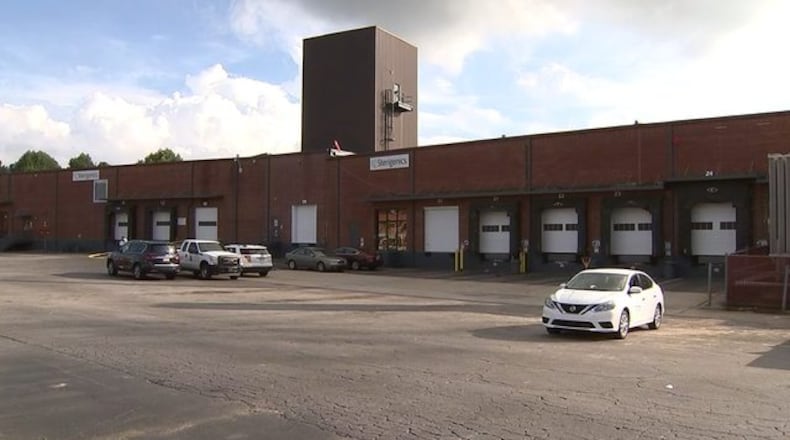The controversial medical equipment sterilizer Sterigenics will be allowed to reopen its plant near Smyrna to help combat the shortage of medical equipment in the fight against the novel coronavirus pandemic.
Cobb County Commission Chairman Mike Boyce signed an emergency authorization Wednesday, allowing Sterigenics to reopen on a “limited contingency basis.” The plant had been closed since August pending the re-issuance of local and state permits.
In a separate move, medical sterilizer Becton Dickinson was granted permission to temporarily increase the number of devices it can process at its Covington and Madison facilities. BD had been in limited production after signing a consent order with state regulators, which was amended Wednesday.
Boyce’s authorization came at the urging of the federal Food and Drug Administration. The FDA sent a letter to Gov. Brian Kemp last week citing the need for increased sterilization to address the shortage.
According to a county statement, Sterigenics completed a negative air pressure test of new pollution controls at its facility on Monday.
The results of that test were passed on to the Georgia Environmental Protection Division, which informed the county that new system “appeared to be working as designed,” the statement said.
EPD officials are awaiting a final test report to review before the facility can be cleared to resume normal operations, it said.
Boyce’s authorization expires at the end of the county’s Declaration of Emergency, and restricts the amount of ethylene oxide permitted on site, according to the document. It also requires immediate reporting of any incident at the facility.
Janet Rau, head of the grassroots group Stop Sterigenics Georgia, said she wished the county had given greater consideration to the facility’s neighbors, which include a daycare center that has remained open through the public health crisis.
“These are very difficult times and we appreciate that the county feels like they are doing everything they could possibly do to keep the greater community safe,” Rau said. “But there are assurances that haven’t been made to the community that is close to Sterigenics, so we really wish that they would ensure that there was resumed ambient air testing for the duration of this allowed opening.”
Some Cobb residents and elected officials have questioned whether the types of devices sterilized by Sterigenics are the same that are needed to respond to the coronavirus.
In a statement sent to The Atlanta Journal-Constitution in response to a list of questions, the FDA addressed some of those concerns.
“We are aware that the need for PPE (personal protective equipment) such as gowns, respirators, masks, and gloves is outpacing the supply,” the agency statement said. “PPE used in surgical and other interventional procedures also requires ethylene oxide sterilization ... The FDA recognizes that there are concerns associated with the release of ethylene oxide into the environment if emissions were to occur at unsafe levels. We stand steadfast in our commitment to reduce over-reliance on ethylene oxide for medical device sterilization.”
The federal government has increased pressure on Georgia to work with sterilizers like BD and Sterigenics that have come under scrutiny for their use of ethylene oxide — a combustible, carcinogenic gas.
The changes to BD’s consent agreement will be in effect until 14 days after the governor lifts the Declaration of Public Health State of Emergency for coronavirus.
In a statement Wednesday, the Georgia EPD said the decision to amend BD’s consent order followed discussions with the U.S. Department of Health and Human Services, the FDA, and the U.S. Environmental Protection Agency.
EPA Administrator Andrew Wheeler commended state officials for “taking the necessary steps to increase the nation’s capacity to sterilize critically needed life-saving medical equipment.”
“While we must take into account the risks from emissions of ethylene oxide, and addressing those risks remains a major regulatory priority for the agency, it’s important to bear in mind those risks are linked to exposure over an entire lifetime,” Wheeler’s statement said. “However, COVID-19 poses an immediate threat to our nation during this crisis.”
About the Author
Keep Reading
The Latest
Featured



